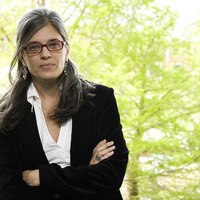Paola Bergallo
Universidad Torcuato Di Tella, Escuela de Derecho, Faculty Member
Numerosos estudios han indagado sobre la trayectoria del proceso que condujo al nuevo regimen internacional de propiedad intelectual. Sin embargo, pocos han abordado la vinculacion entre la dimension internacional y las experiencias... more
Numerosos estudios han indagado sobre la trayectoria del proceso que condujo al nuevo regimen internacional de propiedad intelectual. Sin embargo, pocos han abordado la vinculacion entre la dimension internacional y las experiencias locales de armonizacion de las legislaciones sobre propiedad intelectual. Este trabajo se propone contribuir a esa agenda menos desarrollada de investigacion mediante una reconstruccion de la experiencia argentina que, a comienzos de los anos noventa, culmino con la sancion de un nuevo regimen legislativo sobre propiedad intelectual y proteccion de la confidencialidad de los datos. El trabajo adopta la perspectiva de los estudios sobre la recursividad del derecho desarrollados por Halliday y Carruthers para explicar la produccion de normas en la era de la globalizacion. Sobre la base de la informacion recopilada en la revision de archivos, documentos y treinta y dos entrevistas con referentes en la tematica, el trabajo revela como actores locales prominentes frustraron de modo reiterado las estrategias del gobierno de EE.UU. y la industria farmaceutica multinacional que buscaban la expansion de la regulacion patentaria promoviendo la adopcion de regimenes de propiedad intelectual ajustados a sus demandas.
Research Interests:
In December 2020, first trimester abortion was legalized in Argentina with the passage of Law 27.610. This historic move presents an inflection point for Argentine democracy, as well as a case study in how rights concepts can be deployed... more
In December 2020, first trimester abortion was legalized in Argentina with the passage of Law 27.610. This historic move presents an inflection point for Argentine democracy, as well as a case study in how rights concepts can be deployed effectively to advance reproductive justice. In this event, key actors in the long struggle for legalization — including representatives from the executive and the legislative branches of government, as well as civil society, together with legal academics and health professionals — will describe the complicated and multi-staged narrative of how Argentina arrived at this point. Panelists will reflect on the legislation’s significance in engendering Argentine democracy, and consider challenges to implementation across a diverse country with a significant Catholic population. The discussion also will address the so-called “Green Wave” of feminist mobilization for this law, and its broader implications for advancing sexual and reproductive health and rights and gender equality across the region. Panelists Chairs and Moderators: Alicia Ely Yamin, Senior Fellow, Petrie-Flom Center for Health Law Policy, Biotechnology, and Bioethics at Harvard Law School; Adjunct Senior Lecturer, Harvard TH Chan School of Public Health; Research Leader, Gender Sexuality and the Law Unit, UiB-CMI Centre on Law and Transformation; and Paola Bergallo, Director, Gender Team at Fundar; Associate Professor of Law, School of Law, Universidad Torcuato di Tella and Adjunct Researcher, Consejo Nacional de Investigaciones Científicas y Técnicas (CONICET) Brenda Austin, Congresswoman, Unión Cívica Radical Dora Barrancos, Senate Candidate, Frente de Todes Sandra Formia, Obstetrician/Gynecologist, former Provincial Coordinator, Sexual and Reproductive Health, Santa Fe Province (2017-2019) Natalia Gherardi, Executive Director, Equipo Latinoamericano de Justicia y Género (ELA) Vilma Ibarra, Legal and Technical Secretary, Presidency of Argentina Silvia Lospennato, Congresswoman, PRO Silvina Ramos, Technical Coordinator, National Plan for the Prevention and Reduction of Unintentional Pregnancy in Adolescence (Plan Enia); Advisor, National Directorate of Sexual and Reproductive Health of the Ministry of Health of the Natio
